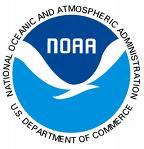New fisheries economic impact data

Thursday, January 08 2009
Unalaska, AK – The National Oceanic and Atmospheric Administration recently released new data on job creation and sales generation by the commercial and recreational fishing industries. Alaska does not rank number one. Of the $103 billion dollars in commercial fishery sales for 2006, the year from which data was complied, only $3 billion came from Alaska. Alaska ranked number 9 for overall job creation with 40,000 jobs. California ranked number one with $9.8 billion dollars in sales and 179,000 jobs.
NOAA economist Rita Curtis explained that the data was produced by a computer model. The model takes into account landing data and harvesting and processing jobs and adds retail sector jobs such as in seafood restaurants and grocery stores. It then accounts for a "ripple effect."
The ripple effect takes into account not just "the jobs in the retail sector but also the jobs that are generated from those employed [who] then go out and they make other sales. They demand other services. So they go out and pay their mortgage, they go out for dinners they do all of these activities and those support additional jobs. And so the software is able to account for how those dollars get allocated throughout the economy and come up with this total number," Curtis said.
Alaska doesn't have large enough population centers for these ripple effects to create that many jobs or that much revenue within the state, she said.
"However, if you just looked at the commercial harvest sector and the seafood processors and the seafood dealers, these sub-components of fishing industry, Alaska is number one across the board."
Alaska is also number one for landing revenue, and it is the only state where the commercial fishing industry is the number one private employer. The data for recreational fishing shows it provides for 6,400 jobs and 562 thousand in sales in Alaska.
Curtis said the information NOAA compiled is used by industries, governments, and individuals to help them understand the importance of fishing in their communities and to assess the damage done to their communities after natural disasters, such as hurricanes.



